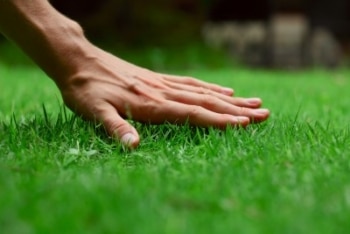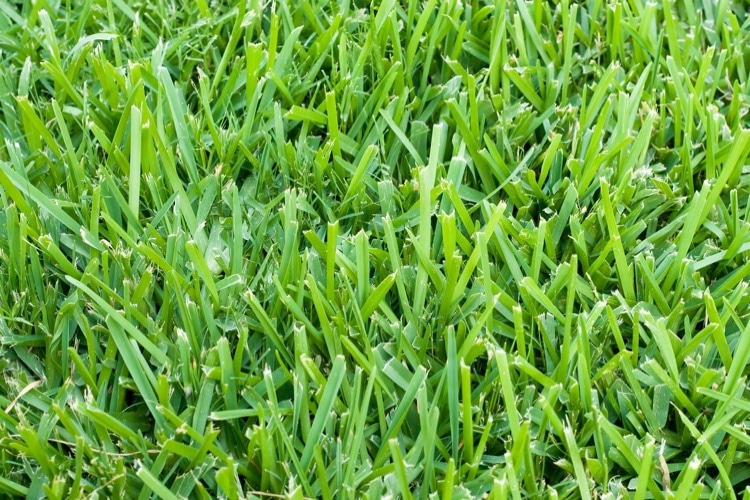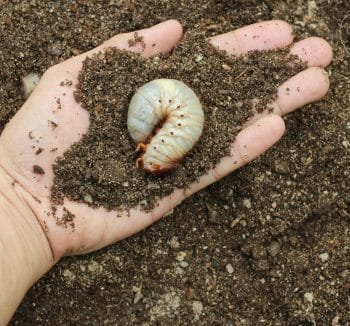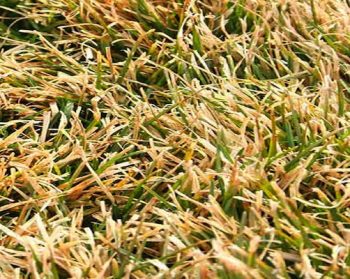
If you’re looking to achieve the perfect
Here in North Texas, many homeowners choose St. Augustine grass for their lawn – known scientifically as Stenotaphrum Secundatum.
Our most popular varieties are: Palmetto and Raleigh. Whichever one you’ve selected, Ryno Lawn Care, LLC is here to help you keep it healthy and beautiful.

Palmetto St. Augustine grass is a favorite in our region, due to its resilience in both hot and cold weather. It stays green much longer than most other Texas grasses, and can withstand multiple winter frosts before going dormant. Palmetto is less likely than others to get thatchy, even in heat spells, which makes it a lush and even ground cover.
Raleigh St. Augustine grass is native to North Carolina, and has been transplanted to Texas via sod grass installation. It’s both heat and cold hardy, just like Palmetto grass, but tends to need a bit more iron and irrigation in the summertime. Raleigh is known for its thick blades and shade-hardiness.
If you aren’t sure which type of St. Augustine grass you need, or which you’ve currently got in your lawn, our pros can help you identify your breed and its needs.
Using a high-quality broadcast spreader is ideal for fertilizing St. Augustine Grass, as it provides even distribution of the fertilizer product.
A quality ‘weed-and-feed’ fertilizer is essential for combating weeds without compromising your healthy lawn. This is a special type of fertilizer that kills the weeds while promoting grass growth, which is a great way to maintain the purity of your St. Augustine grass.
You don’t always want to use the same type of fertilizer throughout the year. Check out these lawn fertilization tips.
Contact us to get on a fertilization schedule that meets your St Augustine grass requirements.
Both breeds of St. Augustine grass need a bit more water in the summertime than their common Texas counterparts. While an inch, or a little more, of water per week is generally adequate, you’ll want to treat your St. Augustine to some extra irrigation if you notice the blades beginning to yellow.
When it comes to keeping your bed of St. Augustine grass looking lush and emerald green, let Ryno Lawn Care, LLC help you with annual lawn care and weed control.
Other common grass types we offer are Bermuda and Zoysia.
Ryno Lawn Care, LLC
1740 N Stemmons Fwy
Lewisville, TX 75067
Mon-Fri: 8am- 5pm

If you’re looking to achieve the perfect

Grubs will cause severe damage to your

As the grip of winter gives way
Copyright © 2009-2022 | Ryno Lawn Care – Site Powered by Green Jay Media